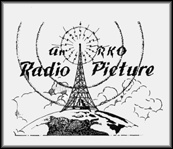In short, yes. Roger's methods have become increasingly unsound in the year since he emerged from his coma and resumed his journalistic duties. He is old, he has cheated death. He is a fearless crank. He no longer gives a damn.
The writing in Roger's reviews, articles, and blog entries has grown more cavalier, pithier, more vulgar, frank, and prone to whimsical digression. This was always his preferred style to some extent, but now we see him loosed. The humiliation he suffered during his extended illness has burned away all sense of shame and propriety. He turns lascivious in his impotence. He boasts of his success with women, of the breasts he has expertly handled. He writes informedly about strip clubs and hookers in his youth, a casual display of familiarity with practices sordid and lewd, all the while maintaining a veteran air of superiority; treading in filth whilst clucking wise admonitions. Roger would have it both ways, like a good Catholic boy.
He remains a zealous advocate for the nobility of good journalism (indeed more so), yet strides boldly as though unbound by pedestrian ethics. He is a forceful, reckless defender, grown quick to anger as like Jesus toward the money changers. His vicious (unprovoked) response to the resignation of Jay Mariotti was delivered with the weight of moral imperative. Weeks later, amid the furor that erupted over his scathing dismissal of "Tru Loved" (of which he admitted to watching only the first 8 minutes), in repentance he nailed his 95 Theses of Criticism to the door; a turtlenecked Col Kurtz struggling to simultaneously transcend and adhere to the law. He baits his enemies with veiled satire (see the blogstorm on creationism), seeking conflict, testing the limits of his power.
Roger believes his mind is becoming more advanced. Robbed of speech, forced to adapt, he now claims to be gaining access to his brain's untapped potential. For Roger it is Act 4: Jupiter and Beyond the Infinite. His weekly output is accelerating. He asserts that he is nearing total mastery of the short form. He finished his book on Scorsese. He wrote a one act play on Barack and Hillary. His confidence fosters bravado. He threatened to endorse a rice cooker, and did. He now threatens a cookbook. His writings bang with typewriter laughter. He is extremely satisfied with his own flourishes of humor. He fancies himself an expert on the rules of wit and the art of telling a joke. Moreover, he frequently boasts expertise in social etiquette and human behavior, going so far as to pronounce himself a more discerning political analyst than all the talking heads, and will dispense gushes of advice after feigned reluctance as though he deems himself overqualified to write a Dear Abby column. He swells with a dual sense of authority, drawn both from his cosmopolitan professional life and his folksy midwestern upbringing. His life experience is total, he cannot be argued with.
The apparent rennaissance of the last few months belies the truth revealed in the preceding year. Roger is convinced that the end is near. He ruminates on death, surveys his life, mourns those who are already gone, ponders what's left. He remarks on his mortality with directness, clarity, as though he is now holding it close up. You get the feeling he's wrapping up, looking around the store and flipping the switches. His liberal doomsaying is reaching a crescendo. He is hopelessly depressed by global warming, the credit crisis, the national debt, Iraq. We've raped the earth, squandered our resources, looted the treasury. We're beyond the tipping point, can no longer be saved. You maniacs.
Studs Terkel, whom Roger considers the greatest Chicagoan and a personal hero, has just died. Roger flicks another switch. I think the flurry of mad activity we're witnessing is the big guy's big finale. I hope I'm wrong. He is a personal hero to me.
My God, it's full of stars.
Sunday, November 2, 2008
Subscribe to:
Posts (Atom)
